This code revolves around a malfunction associated with the ignition/distributor engine speed input circuit. Essentially, the code signals that the Engine Control Module (ECM) or Powertrain Control Module (PCM) has detected an irregularity or disruption in the engine speed input signal, which typically stems from the ignition control module or the crankshaft position sensor. These components are pivotal in monitoring and managing the engine’s ignition timing.
More about the code
When P0320 is triggered, it implies that the ECM or PCM can’t surely determine when to spark the ignition coils and initiate fuel delivery to the combustion chamber. This glitch can adversely affect the vehicle’s ignition system and the overall operation of the engine. It might manifest in the form of engine stalls, difficulty starting, or diminished engine performance, as the precise timing for ignition becomes compromised.
What Are Common Causes of Code P0320?
Delving into the technical side, here are the common causes for this code:
- Faulty Crankshaft Position Sensor. One of the primary causes can be a malfunctioning crankshaft position sensor. This sensor is responsible for determining the engine’s speed and piston position, which the ECM uses to time ignition and fuel injection.
- Damaged Wiring or Connectors. The wiring or connectors linked to the crankshaft position sensor or ignition/distributor may be corroded, damaged, or have loose connections, leading to intermittent or incorrect signals.
- Faulty Ignition/Distributor Components. The ignition module, distributor, or related components, if malfunctioning, can disrupt the engine speed signal, causing the P0320 code.
- Damaged Signal Plate. On some vehicles, the crankshaft position sensor reads from a signal plate. If this plate is damaged or has become misaligned, it can lead to erratic signals.
- Malfunctioning ECM/PCM. Though less common, it’s possible for the Engine Control Module (ECM) or Powertrain Control Module (PCM) itself to be the culprit, either due to internal faults or programming errors.
In essence, the P0320 code arises when there’s an interruption or distortion in the signals that help determine engine speed and position, essential for appropriate ignition timing.
Related DTCs to P0320
P0315, P0316, P0317, P0318, P0319, P0321, P0322, P0323, P0335, P0336, P0337, P0338, P0339, P0340, P0341.
FAQs
How much does it cost to fix the code P0320?
If you’re addressing a P0320 code, you might expect to pay anywhere from $100 to $1,500 or possibly more, depending largely on the specific issue and your vehicle’s particulars. The root cause of the code, vehicle make and model, labor rates in your area, and the price of parts are contributing to the price the most. Here’s a general breakdown:
- Crankshaft Position Sensor Replacement. This is one of the more common reasons for the P0320 code. The part itself typically costs between $40 and $120. However, with labor, the total cost might range from $100 to $250.
- Wiring or Connector Repairs. If the problem is due to damaged wiring or connectors, the repair could be relatively inexpensive if it’s a simple fix. However, if extensive electrical diagnostics and repairs are needed, costs can rise. You might expect to pay anywhere from $50 to $300 or more, depending on the complexity.
- Ignition Module/Distributor Replacement. Replacing ignition modules or distributors can be more expensive. Parts can range from $50 to $300 or even more for certain high-end or specialized vehicles. With labor, total costs might be in the $100 to $500 range.
- ECM/PCM Replacement. This is less common but can be the priciest fix. ECM/PCM replacements can range from $500 to $1,500 or more, including both parts and labor, depending on the vehicle.
- Signal Plate Repair. Costs here will largely depend on the design of the engine and how accessible this component is. It might range from $100 to $400 or more, combining parts and labor.
Can I continue driving with the P0320 code?
Driving with a P0320 code isn’t generally recommended for the following reasons: performance issues, stalling risks, potential for additional damage, difficulty starting and reduced fuel efficiency.
What causes a faulty crank sensor?
Several factors can lead to a faulty crank sensor (CKP):
- Overheating and Vibrations
- Damaged Wiring or Connectors
- Contamination
- Age and Wear
- External Damage
- Faulty Installations or Replacements
- Manufacturer Defects
Can a dirty crank sensor cause misfire?
Yes, a dirty crankshaft position sensor can indeed contribute to engine misfires. If the sensor becomes contaminated with debris, dirt, or excessive engine oil, its ability to accurately read the crankshaft’s position can be compromised. An inaccurate or inconsistent signal can confuse the ECM, leading to mistimed ignition or fuel injection events.
We do an efforts to find, research and recommend the best products. So, we may receive commissions from purchases that you make after following the links in our product reviews.


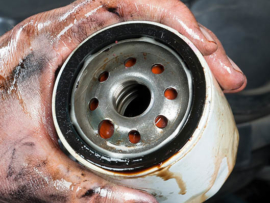
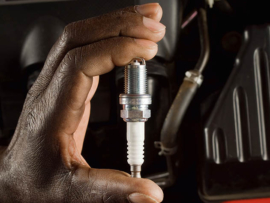
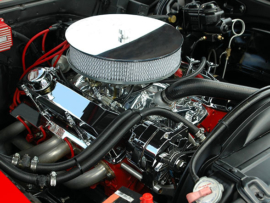

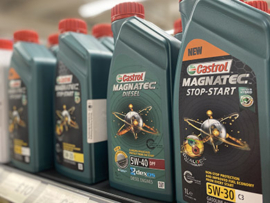
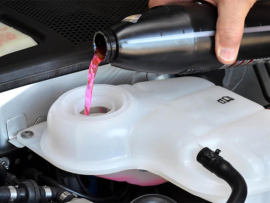
Leave A Comment